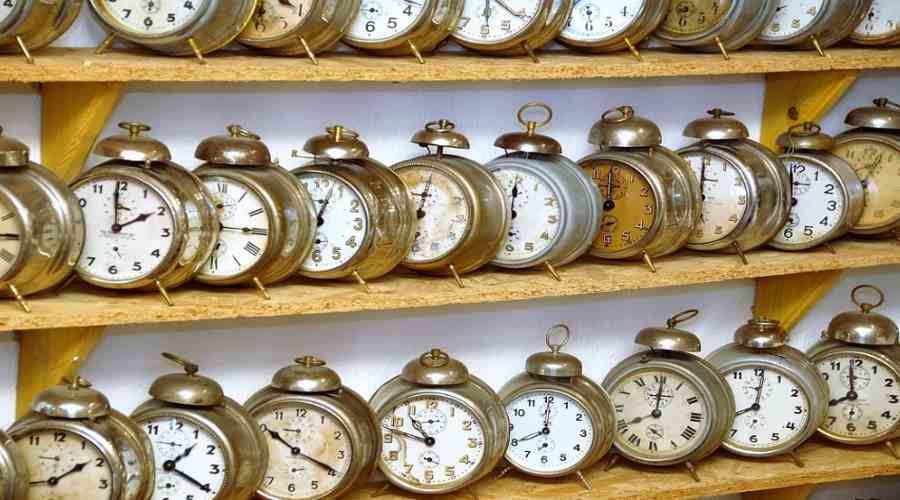Saturday night to Sunday we change to daylight saving time and sleep shorter
On the night from Saturday to Sunday we change from winter time to daylight saving time, which will make us sleep one hour less. On March 26 in the morning, the hands of the clocks will be moved from godz. 2.00 per 3.00. We will return to winter time on the last Sunday of October.
Throughout the European Union, daylight saving time begins on the last Sunday in March and ends on the last Sunday in October. In 2017 to winter time wróTherefore, we will move the clocks to October 29. Mówi t h the indefinitely applicable EU directive of January 2001.: "Starting in 2002. The summer time period ends in each member state at hrs. 1 universal time (GMT) on the last Sunday in October".
In Poland, the time change is regulated by a decree of the President of the Council of Ministersów. The previous one was in effect until 2016 and someóers opposed to the time change, such as. Republican Foundation and KoLiber Association appealed to Prime Minister Beata Szydło not to sign another decision on the matter. At the beginning of November 2016, however, the government issued a decree, whichóre extends the use of summer and winter time until 2021.
Conducted twice a year, the time change is expected to contribute to more efficient use of daylight and energy savings, although opinions on these benefits are divided.
The authors of the report "Good change is no change. time" from the Republican Foundation and the KoLiber Association – based on available analyses – have argued that the time change does not affect in a mannerób significant on "energy issues". Instead, they pointed out that in the midst of theód negative effectsów is m.in. changing distributionóin transportation companies, closed overnight internet systems bankóin and other institutions, whether adverse effects on the behavior of investorsóin stock exchange. According to them, in the periods after each time change, moreover, the productivity of the worker decreasesóIn and the number of exemptions increases.
Time change – advantages and disadvantages
Research on the impact of the time change on energy consumption or human health and well-being is abundant. A study of electricity consumption in the state of Indiana (USA) showed that after the introduction of daylight saving time, the bills of residentsów for electricity increased. In contrast, research in California has shown that in that state, changing the time does not cause changes in the demand for electricity.
The Japanese have calculated that the use of daylight saving time can reduce carbon dioxide emissions by 400,000. tons. This, in turn, can helpóc to save up to 930 million liters ofóin fuel. In addition, it contributes to a 10 percent drop in street thefts.
According to scientistóFrom the Canadian Sleep and Fatigue Institute, an hour of sleep lost over the weekend can increase the number of accidentsów on Monday after the time change. From the research of specialistsóAt the University of Alabama at Birmingham, it follows that the shift in the spring indicatedóof the clock forward one hour perhaps by 10 percent. also increase the risk of heart attack. GlóThe study’s lead author, cardiologist Prof. Martin Young claims that the reverse effect is shown by reversing the indications of theówek by one hour in the fall – then the risk of heart attack drops by 10 percent. According to him, the change in time causes the assumptionóprice of our internal biological clock, which our body feels more strongly in the spring.
Researchers at Finland’s University of Turku have shown that moving the clock forward one hour and putting theóprice of the diurnal rhythm increases the risk of ischemic stroke mózgu, but only temporarily. Analysis of data collected for 10 years in the midst of theódcóIn Finland, it has shown that ogólna incidence of ischemic stroke was 8 percent. higher during the first twoóch days after the change to daylight saving time. In contrast, after another twoóch days no longer noticed any róof. It was also discovered that people with cancer, were 25 percent. more likely to suffer a stroke immediately after the switch to daylight saving time. The risk was róalso noticeably higher in the case of waspsób above 65. year of life. In them, the probability of a stroke shortly after the clock is movedów to daylight saving time was higher by 20 percent.
All because of Franklin
The introduction of daylight saving time, i.e. shifting pointingówek clocków an hour ahead during the spring and summer, was reportedly first proposed by Benjamin Franklin in the 18th. It was supposed to pomóc better match the time of a person’s activity with the hours in which theówhere there is the most sunlight and bring savings. This is why daylight saving time is referred to in English as "daylight saving time". In Poland, the time change was introduced in the interwar period, then in 1946-1949, 1957-1964, and since 1977. apply it continuously.
